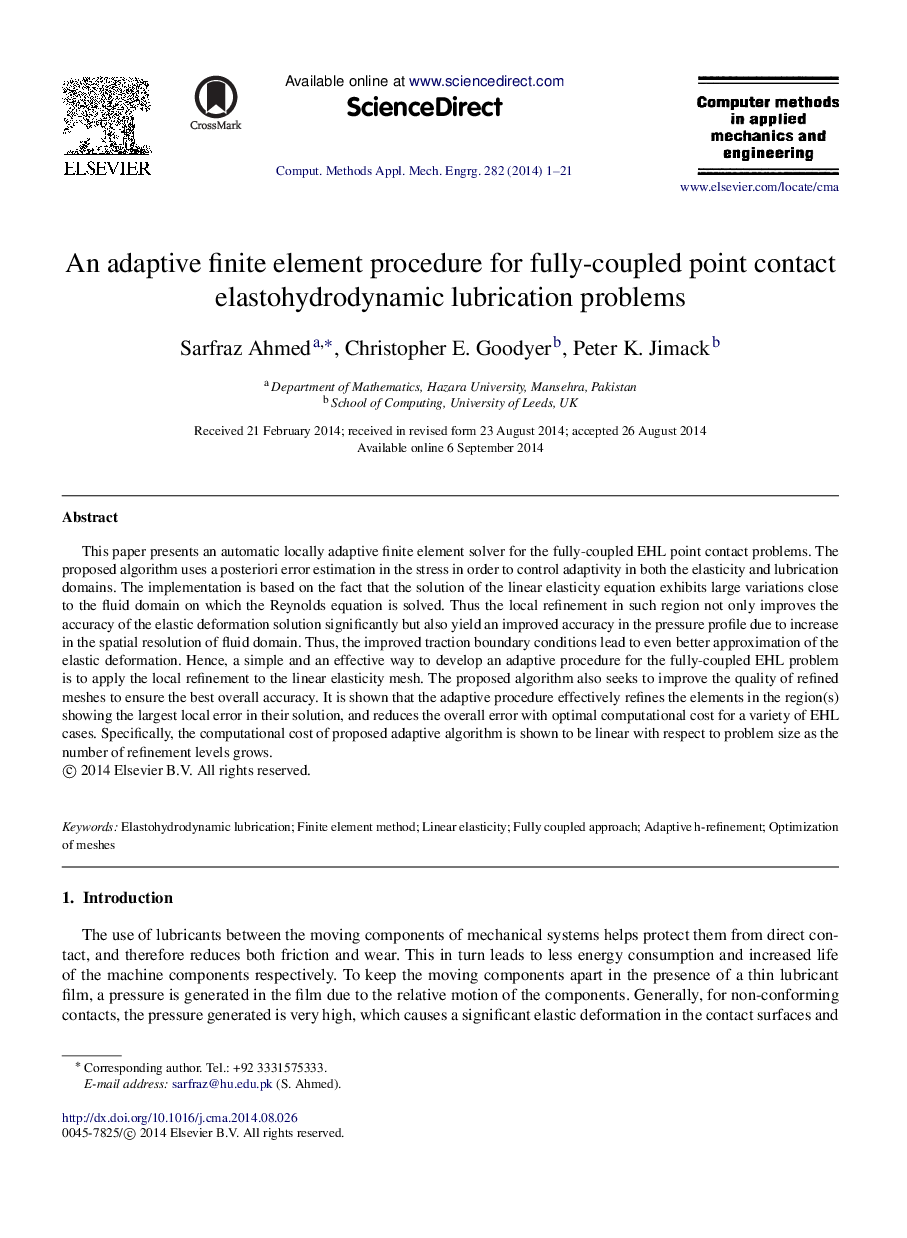| Article ID | Journal | Published Year | Pages | File Type |
|---|---|---|---|---|
| 497953 | Computer Methods in Applied Mechanics and Engineering | 2014 | 21 Pages |
This paper presents an automatic locally adaptive finite element solver for the fully-coupled EHL point contact problems. The proposed algorithm uses a posteriori error estimation in the stress in order to control adaptivity in both the elasticity and lubrication domains. The implementation is based on the fact that the solution of the linear elasticity equation exhibits large variations close to the fluid domain on which the Reynolds equation is solved. Thus the local refinement in such region not only improves the accuracy of the elastic deformation solution significantly but also yield an improved accuracy in the pressure profile due to increase in the spatial resolution of fluid domain. Thus, the improved traction boundary conditions lead to even better approximation of the elastic deformation. Hence, a simple and an effective way to develop an adaptive procedure for the fully-coupled EHL problem is to apply the local refinement to the linear elasticity mesh. The proposed algorithm also seeks to improve the quality of refined meshes to ensure the best overall accuracy. It is shown that the adaptive procedure effectively refines the elements in the region(s) showing the largest local error in their solution, and reduces the overall error with optimal computational cost for a variety of EHL cases. Specifically, the computational cost of proposed adaptive algorithm is shown to be linear with respect to problem size as the number of refinement levels grows.
